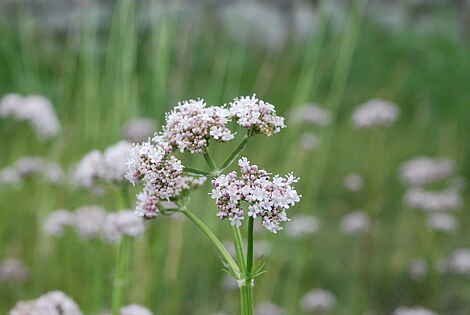In September 2018 we began a research project on the compost preparation plants in tropical and subtropical regions. In the Agricultural Course (1924) Rudolf Steiner clearly stated that the plants recommended for making the compost preparations could be replaced by others, should they be difficult to obtain in some regions. Due to the spread of biodynamic agriculture from Central Europe to numerous countries across the world and, in recent years, to countries in tropical and subtropical regions in particular, new questions arise on this matter:
- What regions have problems in growing one or more of the preparation plants?
- Is it important or of obvious benefit to obtain preparation plants from the local region in particular countries?
- What plants are suitable and how can we recognise them?
- What experience of "new preparation plants" already exists in particular countries?
This research project is planned in four stages:
1. Creation of a network of international advisers, local agricultural experts (or coordina-tors) and botanical and Goetheanistic experts (scientists)
in order to exchange ideas and information on the problems and possible solutions (per e-mail in English).
2. Research on related plants in tropical and subtropical countries – e.g. Valeriana
It is difficult to get Valeriana officinalis to flower in tropical and subtropical countries. The Valerianaceae family comprises around 250 species worldwide. Of these, a large number (approx. 100) are only native in the mountains of Central and South America. Only approx. 10 species grow in the alpine regions of Europe, others in the southern Himalayas (India approx. 15 species) or China (approx. 15 species). Are there any important traditional me-dicinal plants or other specially characteristic plants amongst these species? Is there any experience with the use of other valerian species? We are planning excursions to study other plants from this family. Later we also want to look at the other preparation plants and their families in order to find ways of cultivating them and of working with local ex-perts in cases where there are problems (e.g. Quercus).
3. Expert discussions
We wish to hold expert discussions on the individual preparation plants. The first of these is planned for May 2019 in Dornach on Valerian and Valerian preparation.
4. Summary of research results
The results of the excursions, trials and expert discussions on the individual preparation plants and their alternatives are to be summarised in a booklet so that they can be made available to other interested individuals for further work.
5. Responsible for the project:
- Jean-Michel Florin (head of section for the Section for Agriculture)
- Reto Ingold (freelance co-worker of the Section, advisor for biodynamic agriculture, working mainly in tropical and subtropical countries)
- Dr. Jürgen Momsen (biologist, coordinator and secretary for the research project)
5. Collaborators for the project:
- Jan Albert Rispens (biologist, medicinal plant research)
- Joāo Felipe Toni (MSc., biologist, Institute for Contextual science, Goetheanum)
If you are interested in joining the network, please contact us at e-mail: juergen.momsen@t-online.de
